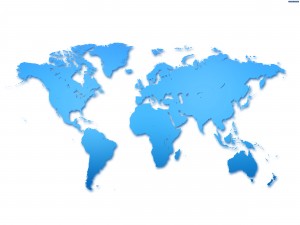Expanding our reach: 2030 WRG current scoping missions

In an effort to further expand our reach beyond our current scope, we are currently scouting other potential countries where our partnerships could help countries achieve a water-secure future. In Latin America, a comparative analysis recommended pursuing the scoping in Sao Paulo state (Brazil) and Colombia. A comparative analysis in Africa recommended pursuing the scoping process in Zambia and Ethiopia. Finally, in Asia, a scoping process will be conducted in Vietnam.
Before engaging in a new country, 2030 WRG has developed a set of country selection criteria as part of its scoping process. The first part of the process involves a background due diligence analysis of the countries being considered, consulting with many of our partners in the process, in order to fully understand risks and opportunities and the potential for a successful outcome of our engagement in the country. A more detailed scoping report then summarizes the research and analysis, focusing on aspects related to political economy, social context, hydrological context, key water institutions, key private sector partners, and international cooperation projects, as those factors influence the likely success of our new engagements.
A comprehensive stakeholder mapping follows to better understand who the critical actors are. Based on this exercise, we conduct an in-country scoping mission to meet with key local stakeholders, to understand the challenges and opportunities of the local water sector, identify key thematic areas of the water sector — which could be the focus of future multi-stakeholder platforms (MSPs) and working groups –, and to assess whether the 2030 WRG approach is suitable for a specific context. This entails listening to the needs of government, the private sector (in particular the companies that are consuming water) and civil society in order to jointly develop solutions to the water challenges.
